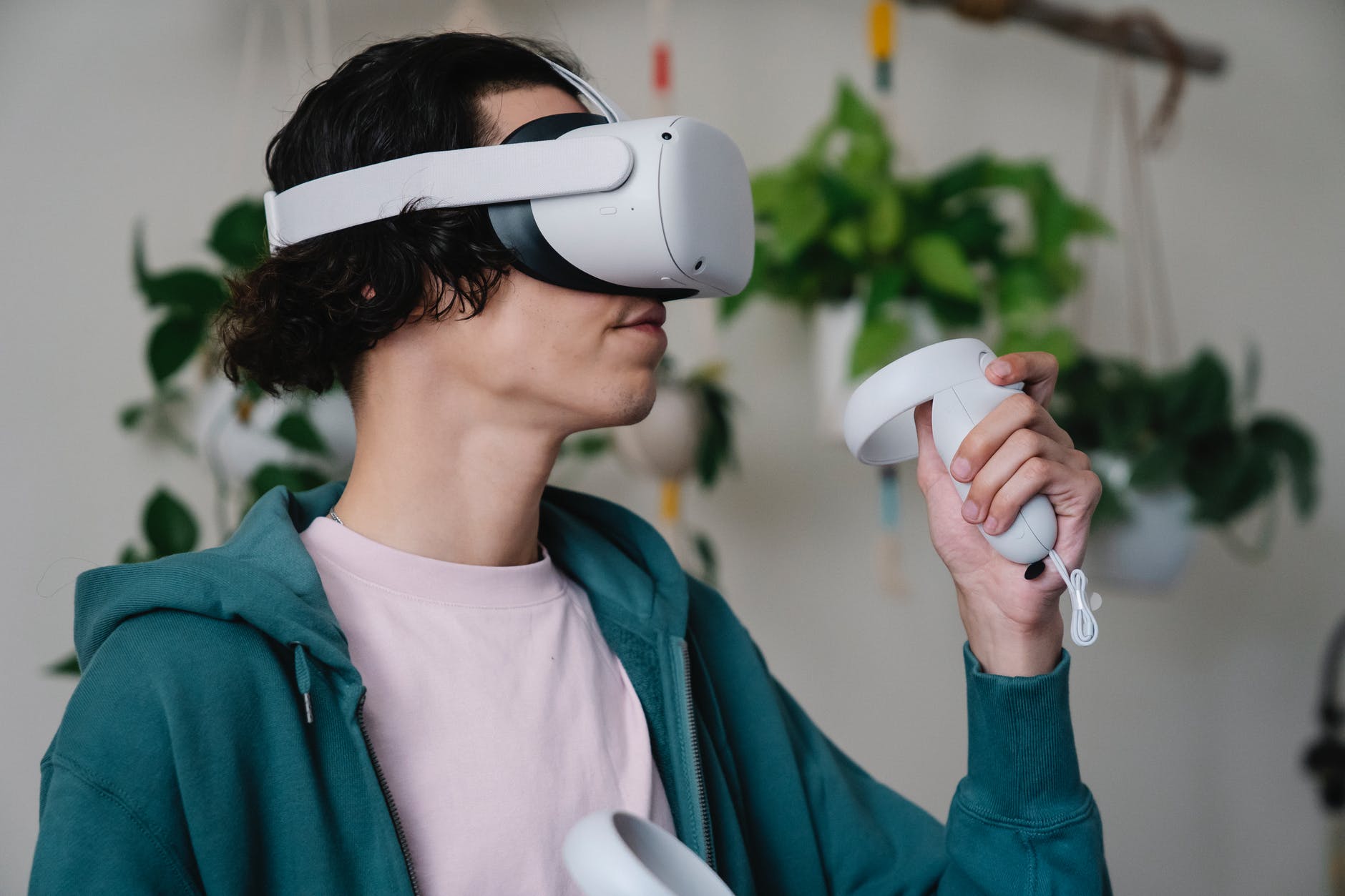
Photo by Eren Li on <a href="https://www.pexels.com/photo/young-man-playing-videogame-in-vr-headset-with-controller-7241425/" rel="nofollow">Pexels.com</a>
Are you looking for a new way to get involved in the manufacturing industry? If so, several avenues will be perfect for you! One option is to start your own business. Another choice is to apply for jobs at an existing company. Whatever path you choose, it’s important to keep up with advancements in technology if you want your business or career in this field to grow and thrive. Here are four technologies impacting manufacturing that will have a significant impact on how things operate going forward.
3-D Printing
In a world where companies such as are going digital, it is no surprise that they want to participate in the additive manufacturing revolution.
If you supply heavy equipment and machines, you need 3D printing for customization. Consider an injection molding company to help you customize the molds to your equipment specifications.
3-D printing will help your company make prototypes and tools, even as it enables you to move into a digital future.
Virtual Reality
Virtual reality is the best way to show people what your product, service, or idea looks like. However, offering a computer simulation of a potential project may not cut it when you could take the person through an immersive experience that enables them to see all angles and dimensions in real-time.
With a full 360-degree view of the present, future, and past in virtual reality, you can do things like fly through an airport building to see what it looks like from all angles or go back in time to experience how your great grandparents and their friends used to spend their day.
This also enables teams spread across different countries or even continents using VR headsets to have meetings without being physically present in one place.
Artificial Intelligence and Machine Learning.
Machine learning and AI in manufacturing will help you optimize the business processes by collecting data and analyzing it in real-time.
Machine learning is a branch of artificial intelligence that teaches computers to recognize patterns, make predictions or sense problems based on experience without being explicitly programmed for each task beforehand.
It’s accomplished through algorithms which are sets of rules about how to solve particular types of tasks, with machine-learning systems able to adjust these rules automatically if they work well for solving an observed problem.
For instance, you can set up the software so that when your factory equipment starts malfunctioning and operating inefficiently – maybe due to wear and tear – AI will flag this as abnormal behavior happening too early in the life cycle (known as “premature failure”) and will recommend a maintenance schedule.
This way, you’re able to preemptively adjust your production planning so you can better avoid downtime costs, which is one of the main advantages of AI-powered devices for manufacturing.
Big Data Analytics
The ability to analyze data in new and more efficient ways is an important change on the horizon for manufacturing. With big data analytics, manufacturers will be able to take advantage of their immediate surroundings by knowing how each employee affects production output and efficiency.
It’s not just about being green anymore; with these insights, it becomes possible for your business to predict when equipment may need repair or replacement, which helps you avoid costly downtime resulting from unplanned maintenance.
Big data analysts are crucial in mining valuable intelligence from all the information collected daily – whether physical assets, human behaviors, or digital transactions.
Conclusion
In conclusion, implementing the above technologies in your company’s manufacturing process should allow for a more efficient and profitable operation.


